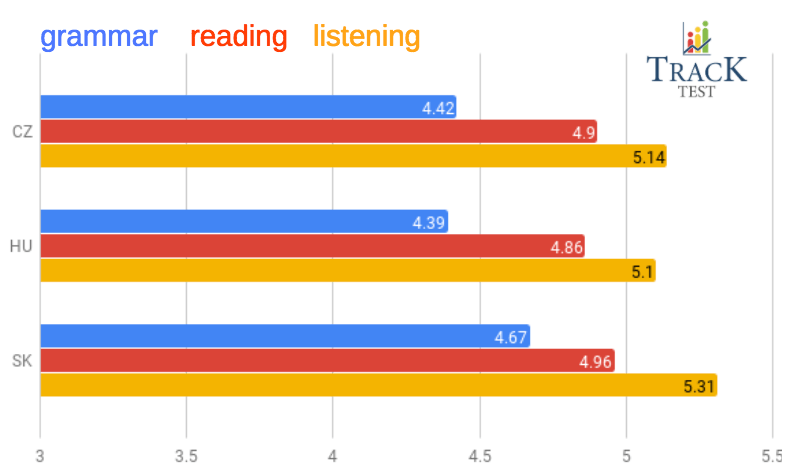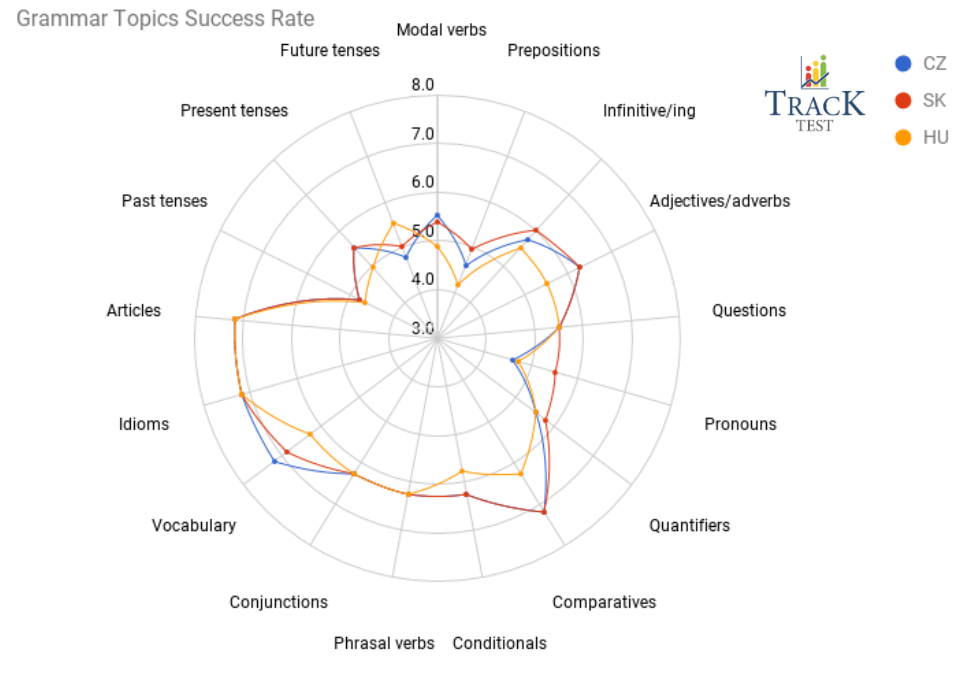Case study: English proficiency of job seekers in Central Europe
Project details:
Goal: Measure the English proficiency of job seekers in the Czech Republic, Slovakia, and Hungary
Participants: 30.000 job seekers from Slovakia, the Czech Republic, and Hungary with some knowledge of English as a foreign language (EFL).
Duration: June 2015- June 2017
Products: TrackTest English Core tests (Use of English, Reading, Listening), A2-C2 CEFR levels.

Results:
Slovak job candidates achieved the best results in the achieved CEFR levels (the biggest share of level B2 and higher: 48%) as well as in the total average Tracktest Score (491 TTS points from max. 1200 points).
Czech candidates were only slightly behind (43% in B2 and higher, 479 TTS points). Hungarian candidates achieved a 33% share of B2 and higher levels, 474 TTS points.

In comparison, adult learners attending language schools or English courses achieved 511 TTS points in 2016 (worldwide average, see School Proficiency Index 2016).
In which grammar categories do job candidates make the most mistakes?

No major surprise occurred in the three skills comparison (Use of English (Grammar)/ Reading/ Listening). All three countries are the best in listening comprehension and struggle with grammar.
In the analysis of particular grammar categories, we can see that Slovakia and the Czech Republic show a very similar profile (less than 0.3 points difference in 15 out of 17 English grammar categories), which can be caused by the similarity of their mother tongue. They both excel in adjectives/adverbs, comparatives, and vocabulary compared to Hungary. The use of pronouns is the only major difference there.
On the other hand, Hungary surprisingly outperformed them in the correct use of future tenses.

Based on Profesia data, 74% of job candidates claim in their CVs that they have some English knowledge. However, a share of job offers requiring a foreign language has decreased over the last 3 years. This arises from employers mitigating their language requirements due to the low unemployment rate and a lack of suitable candidates. For instance, in Slovakia, 42% of all job offers required English language knowledge in 2017, a decrease of 4% compared to 2015.
In comparison, the official school-leaving English exam for upper secondary education in Slovakia, called maturita, is set for B1 and B2 levels, and the maturita in the Czech Republic is at the B1 level.
Check also our case study about monitoring the progress of your students’ English proficiency.
